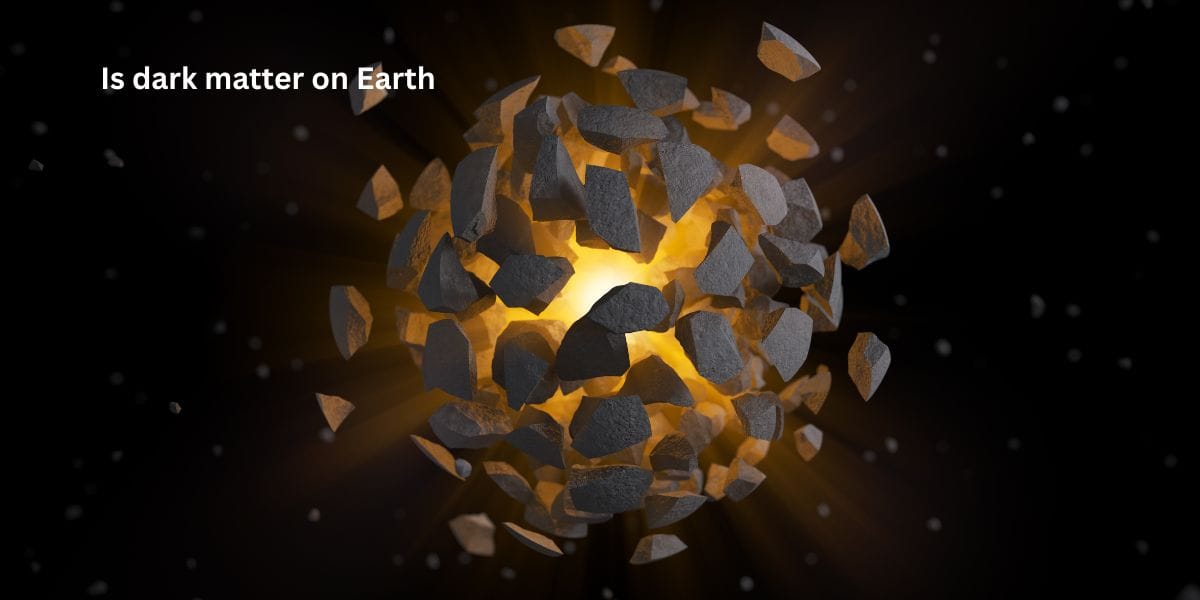Stars, planets, and galaxies are just a small part of the universe. Scientists believe something mysterious makes up most of the universe, dark matter.
Dark matter is invisible. We can’t see it, touch it, or feel it. But scientists know it exists because of its effects on galaxies and stars. It acts like an invisible force holding everything together. But here’s a big question: Is dark matter here on Earth too?
What Is Dark Matter?
Dark matter is a type of matter that does not reflect, absorb, or give off light. That’s why we can’t see it. But it has gravity, just like normal matter.
Think of it like the wind—you can’t see wind, but you can see leaves moving because of it. In the same way, dark matter’s gravity affects stars and galaxies.
- Makes up 27% of the universe (normal matter, like planets and stars, is only 5%).
- Does not interact with light or ordinary matter (mostly).
- Holds galaxies together (without it, galaxies would fly apart).
Scientists are still trying to figure out exactly what dark matter is made of.
Can Dark Matter Be Found on Earth?
Yes, dark matter is likely on Earth right now! But don’t worry—it’s not dangerous. Since dark matter doesn’t interact much with normal matter, it passes through everything, including you, without any effect.
- Billions of dark matter particles may be passing through you every second!
- We don’t feel it because it doesn’t collide with atoms in our bodies.
- Scientists are building special detectors to catch dark matter particles.
So, dark matter is probably all around us—we just can’t see or feel it.
How Do Scientists Detect Dark Matter?
Since dark matter is invisible, scientists use special tools to find it. These tools look for tiny signals when dark matter particles (maybe) hit normal matter.
Some experiments take place deep underground to block other particles (like cosmic rays) that could confuse the detectors.
- Underground labs (like in old mines) help block interference.
- Super-sensitive detectors wait for rare dark matter collisions.
- No confirmed direct detection yet, but scientists keep searching.
It’s like trying to catch a ghost—you know it’s there, but it’s very hard to catch!
Could Dark Matter Affect Us?
Dark matter is mostly harmless because it rarely interacts with normal matter. But could it have any effect on us?
- No direct health risks—it passes through us without harm.
- Could explain some missing mass in the universe (why galaxies spin the way they do).
- If dark matter particles ever collide with atoms, it would be extremely rare.
For now, dark matter is just a silent, invisible part of our universe.
What If We Could See Dark Matter?
Imagine if we had special glasses that let us see dark matter. What would Earth look like?
- A glowing web of dark matter surrounding our planet.
- Dark matter flowing through buildings, trees, and people like a ghostly mist.
- Galaxies wrapped in dark matter halos, holding them together.
It would be like seeing the hidden skeleton of the universe!
Will We Ever Understand Dark Matter Completely?
Scientists are working hard to solve the dark matter mystery. New experiments and space telescopes may help us learn more in the coming years.
- New detectors are becoming more sensitive.
- Space missions might map dark matter in space.
- Theories like WIMPs (Weakly Interacting Massive Particles) could explain it.
One day, we might finally know what dark matter really is!
Conclusion
Dark matter is one of the biggest mysteries in science. It’s invisible, mysterious, and everywhere—even on Earth! While we can’t see or feel it, scientists know it exists because of its gravity.
Who knows? Maybe one day, we’ll find a way to detect dark matter directly. Until then, it remains a fascinating secret of the universe.
📌 Frequently Asked Questions
Can dark matter be seen?
No, dark matter does not give off, reflect, or absorb light, making it invisible to telescopes.
Does dark matter exist in our solar system?
Yes, dark matter is likely spread throughout the solar system, including near Earth.
Is dark matter dangerous?
No, dark matter passes through normal matter without any harmful effects.
How do we know dark matter exists if we can’t see it?
Scientists observe its gravitational effects on galaxies and stars.
What is dark matter made of?
No one knows yet, but scientists think it could be made of unknown particles.
Can dark matter be created or destroyed?
Dark matter behaves like regular matter in terms of conservation—it doesn’t just disappear.
Why is dark matter important?
It helps explain why galaxies hold together and how the universe formed.
Has dark matter ever been detected on Earth?
Not directly, but experiments are trying to catch dark matter particles.
Could dark matter be black holes?
Some tiny black holes could be part of dark matter, but most dark matter is likely something else.
Will we ever find dark matter?
Scientists are hopeful that future technology will help solve the mystery!
